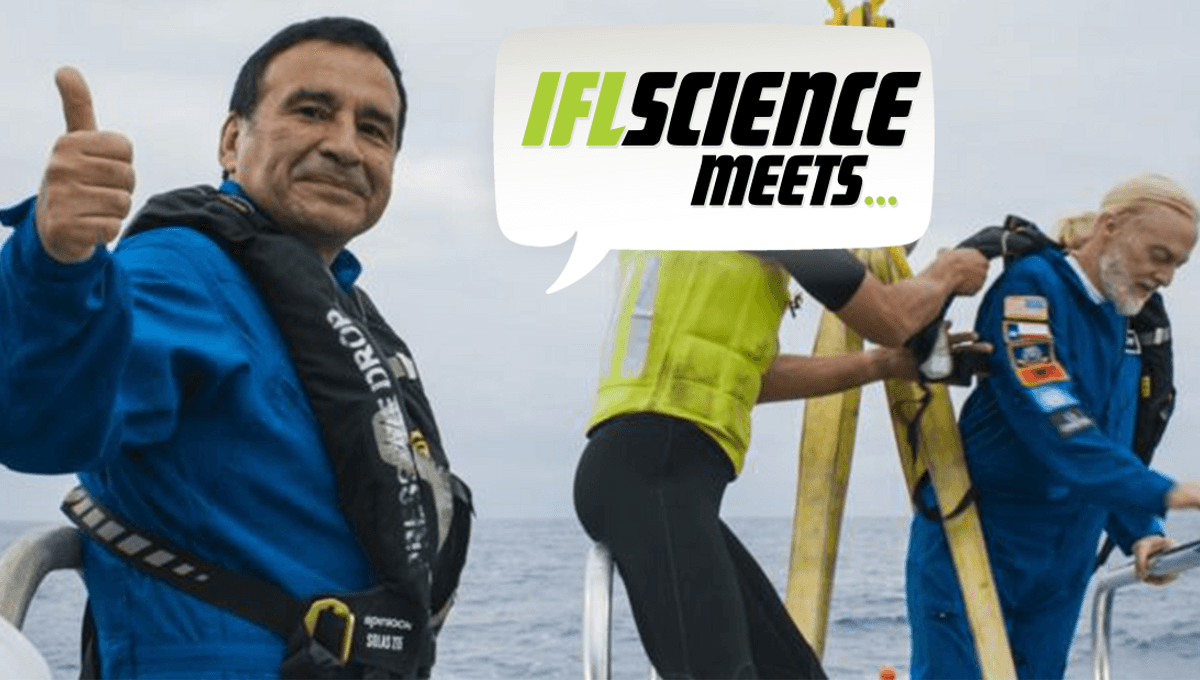
In the latest version of The Climate Change Performance Index 2023 (CCPI), Chile is ranked as the country with the best climate protection performance in Latin America, and the third best in the world. Chile has now committed to achieving net zero emissions by 2050, with specific policies relating to greenhouse gas emissions, renewable energy, and climate policy set out to achieve it.
At a time when so much of the world is fighting for climate, success stories are more important than ever. Fortunately, Oscar-winning production company Fábula and Oscar-nominated director Maite Alberd are bringing us the stories of Chilean men and women leading initiatives that have made Chile such a leading example in mitigating the climate crisis in their film, I Am The Earth: Stories From The Southern Edge Of The World.
We caught up with Osvaldo Ulloa, Director of the Millennium Institute of Oceanography, who features in the film to find out more about his experiences exploring Chile’s marine environments, as well as his hope for its climate future.
How did you get involved with I Am The Earth?
I was contacted by Juan de Dios Larraín, one of the producers from Fábula.
What do you hope people will take away from the film?
That the solutions needed to continue having a habitable planet that’s beneficial to humanity can come from any place.
It’s fascinating to learn about the carbon sequestration potential of the ocean, why do you think it’s often overlooked?
Because of the perception that the ocean will play a minor role within the options we have when facing climate change. Also, because most of the proposed carbon capture and storage technologies are still under development, unproven, not tested at scale, or potentially damaging for the ocean ecosystems.
Can you describe what it’s like diving into the Atacama Trench in a submersible?
The first surprising observation was the large number of holothurians (sea cucumbers) at the bottom of the trench. While we knew they were typical inhabitants of these ultra-deep ecosystems, we did not expect to find them in such high concentrations. This suggests that the Atacama Trench fauna has a high input of nutritious food to feed on.
The other highlight was observing microbial mats on exposed rock, as we ascended a submarine wall within the trench. Contrary to the fauna that gets their energy from consuming organic matter produced ultimately by photosynthesis in the sunlit surface layer, the observed microorganisms get their energy and synthesize organic molecules from inorganic compounds that emerge from the rock fractures. The existence of such “chemosynthetic” communities in the Atacama Trench was a major discovery.
What can other countries learn from the way Chile is protecting and researching its marine environments?
I do not think we can teach other countries what to do, but just show them some of the things we are doing.
What do you hope to see in the coming years with regard to the world’s response to climate change?
To move to a responsible and sustainable consumption and production economy; a faster transition from fossil fuels to renewable and affordable clean energy, including the use of non-carbon and carbon-neutral fuels; and the protection and restoration of marine ecosystems essential for carbon capture and biodiversity.
What advice would you give to people wanting to pursue a career like yours?
Life is an exploratory journey in which you discover things you cannot even imagine exist, so do what you like and enjoy the ride.
I Am The Earth: Stories From The Southern Edge Of The World is now available to stream on Prime UK.
Source Link: IFLScience Meets: Ocean Explorer Osvaldo Ulloa From New Documentary "I Am The Earth"